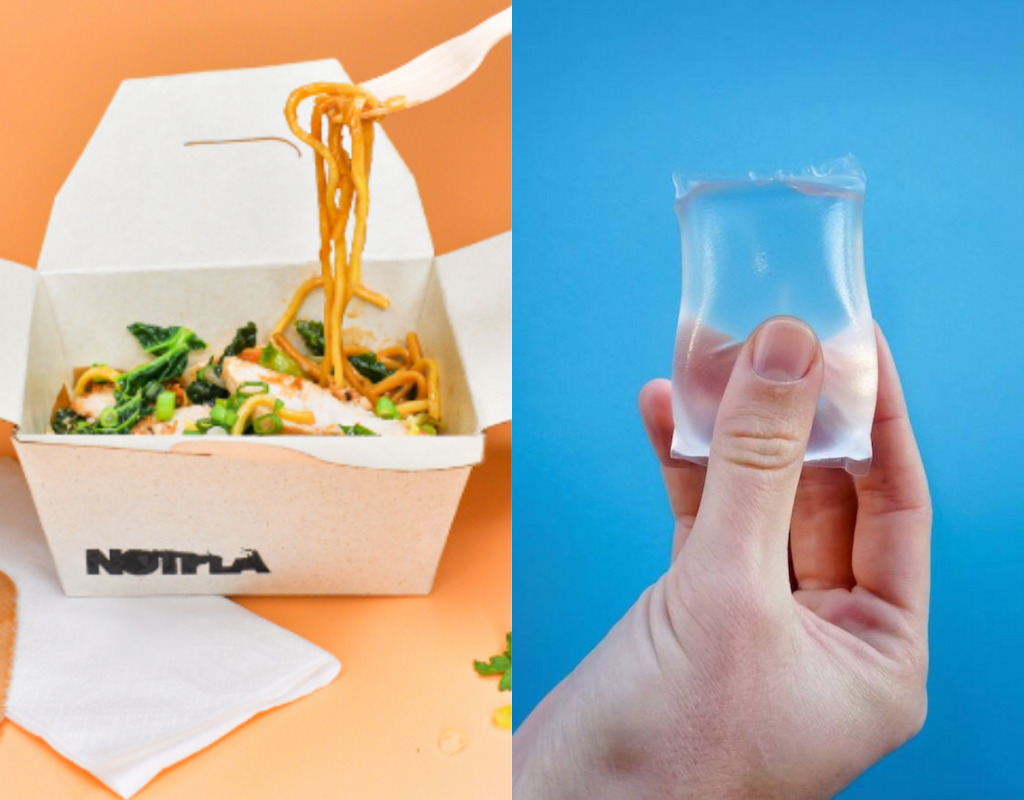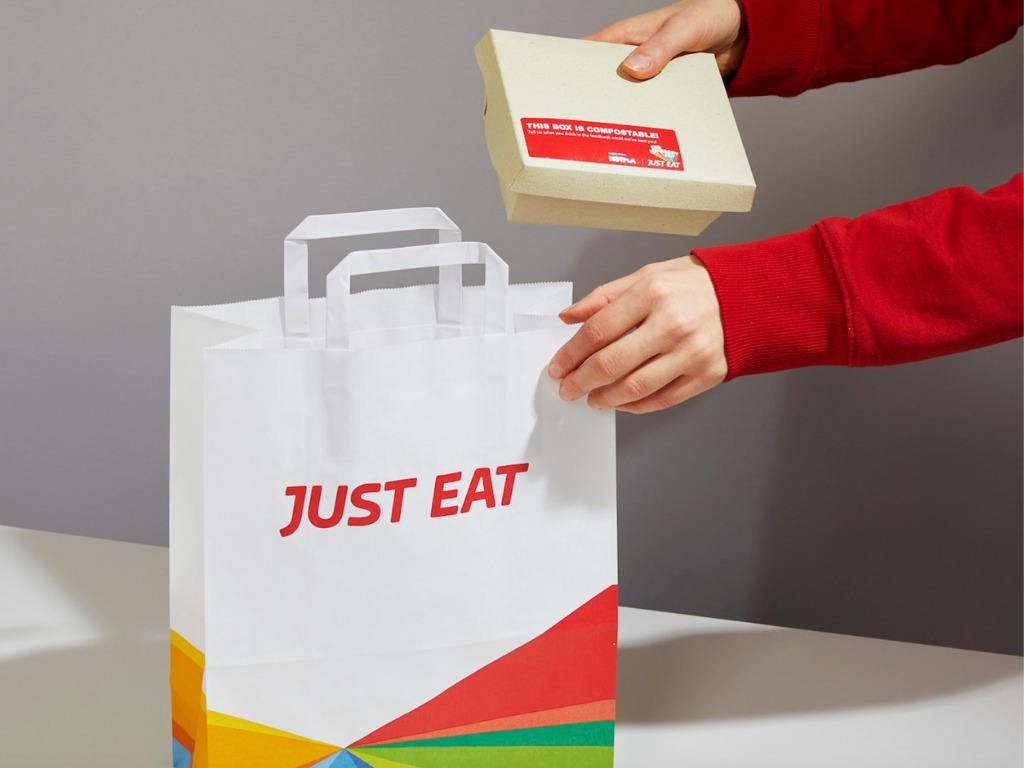4 Mins Read
Just Eat, the British online food ordering and delivery service, is testing compostable seaweed food boxes by Notpla in order to tackle the vast amount of plastic pollution the food takeaway industry produces.
Just Eat, a leading brand in food delivery in the U.K, with over 30000+ restaurants, decided to join forces with London-based Notpla, a packaging start-up, that develops sustainable materials from seaweed and other plants.
The initial trial of Notpla’s food boxes took place last year with three London takeaways. This time around, the second trial will last 3 weeks across Just Eat’s 11 restaurant partners, including Freddy’s Chicken & Pizza in Liverpool, and Mario Pizza in Manchester.
Notpla’s main product is Ooho, a sustainable 100% edible packaging sachet for sauces and beverages that biodegrades within 4-6 weeks. Its other products consist of bottles, cups, and a Notpla Liner that is water-resistant and grease-resistant. It’s the same lining used in the Just Eat boxes.
According to Notpla, a typical takeaway box has synthetic additives added directly into the pulp, making it impossible to decompose. However, the startup’s vegan boxes are lined with seaweed and plant components, with the cardboard container developed out of tree and glass pulp and biodegrade in about four weeks in a home compost.
The delivery brand estimates that with the second trial, 30,000 plastic boxes will be prevented from entering landfills.
According to Packaging Getaway, Just Eat managing director Andrew Kenny said that the company is committed to sustainability. “At Just Eat, we are want to use our scale and influence to drive a more sustainable future for the food delivery industry. From removing single-use plastics to pioneering the use of seaweed sauce sachets, we’ve already taken a number of positive steps to encourage more environmentally-friendly behaviour among our restaurant partners.

At Just Eat, we are want to use our scale and influence to drive a more sustainable future for the food delivery industry. Over half a billion plastic boxes are used across the takeaway industry every year and we know that, eventually, they end up in landfills. This is why we’ve been working closely with Notpla to create an innovative alternative that is recyclable, home-compostable, and degrades in a matter of weeks
Andrew Kenny, managing director, Just Eat
Kenny added: “Over half a billion plastic boxes are used across the takeaway industry every year and we know that, eventually, they end up in landfill. This is why we’ve been working closely with Notpla to create an innovative alternative that is recyclable, home-compostable, and which degrades in a matter of weeks. We’re delighted to bring this new takeaway box to trial and look forward to assessing the results with the aim to roll these boxes out across the U.K. and our other markets so that customers across the globe can enjoy their favourite takeaways more sustainably.”
The partnership has also seen the two companies begin to trial seaweed based sauce sachets, with more than 46,000 plastic sachets prevented from customer use.
Read: Interview with barePack co-founder Roxane Uzureau on the future of takeaway packaging
Notpla co-CEO Pierre Paslier said of the efforts: “Cardboard takeaway boxes either contain synthetic additives or are lined with plastic. With this box, we are offering a real plastic-free, naturally biodegradable option for the takeaway market. Just Eat is a great driver for more sustainable packaging and we’re really excited to help them shake up the industry.”
In the past, Notpla partnered with Lucozade, a soft drink owned by Japanese company Suntory, to provide sustainable hydration at sporting events through flexible plant-based edible packaging for liquids that can be made in various sizes.
Going forward, Notpla is looking to sell their products on a commercial scale and is also in the process of looking for a manufacturing partner in order to expand across Europe, and in the U.S, down the line.
On its end, and in line with its wider sustainability commitment, delivery leader Just Eat has increased its electric vehicle capacity in a bid to lower the emissions associated with its transportation footprintg.
Several companies are increasingly testing sustainable packaging solutions, for instance, Foodpanda Hong Kong, the food delivery giant joined forces with a waste management firm, Baguio iRecycle to tackle single-use plastic waste generated from food deliveries, by offering a free door-to-door recycling service. It has also partnered with barePack to switch to reusable food packaging, with rival competitors Deliveroo and GrabFood following suit in Singapore.
Lead image courtesy of Notpla.



